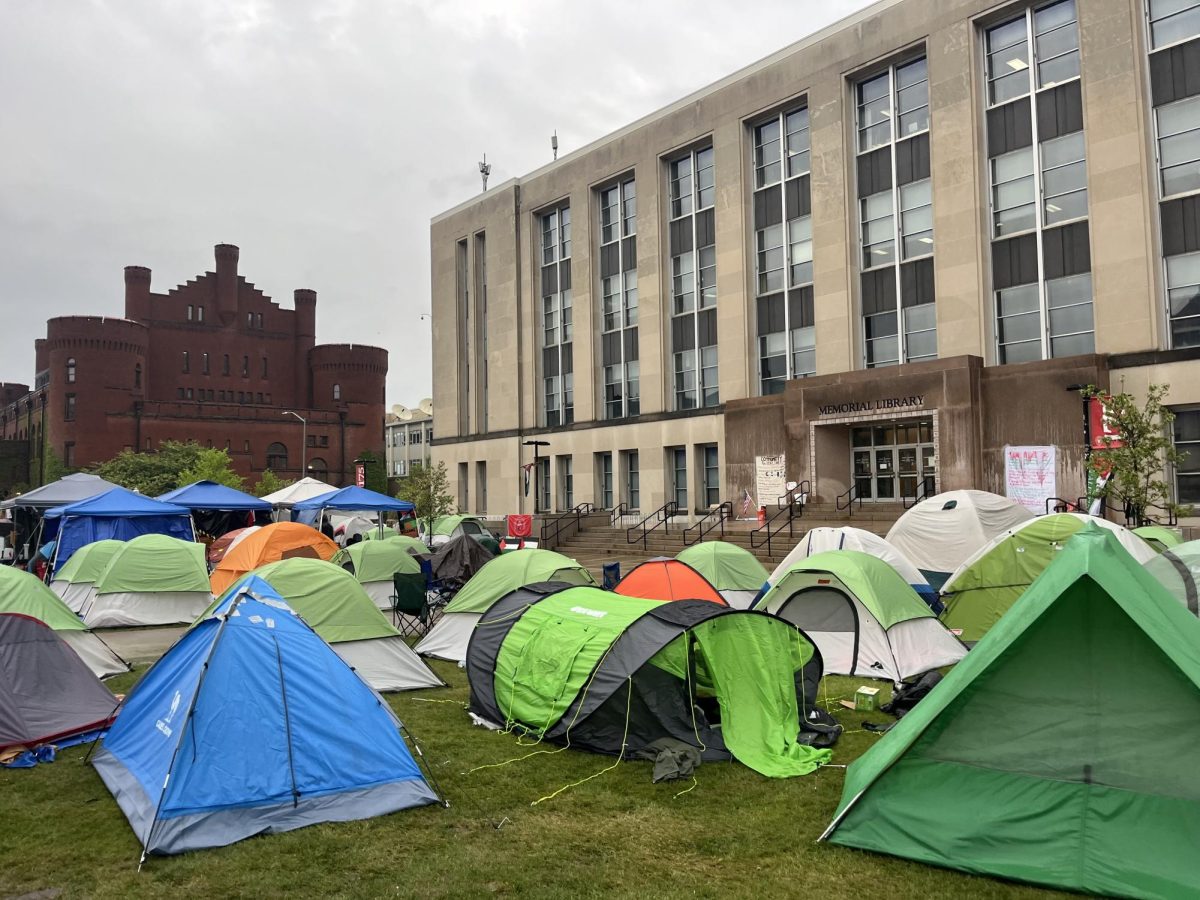The president of the American Association of University Professors spoke at Memorial Union Thursday, addressing problems faced in higher education in his lecture titled, “The National Attack on Public Higher Education: Effective Strategies for Fighting Back.”
Cary Nelson, who in addition to being the President of the AAUP is also a professor at the University of Illinois, Champaign-Urbana, listed reasons as to why faculty and communities should defend academic freedom and the benefits that can come from it.
According to Nelson, the purpose of higher education has four objectives to endow to students: content, skills, socialization and providing students with credentials.
However, Nelson pointed out these objectives do little to include the inspiration of students or the democratic need for the independent-thinking citizens that students become. He also remarked that according to the public, higher education is simply job training.
“[In regards to academic freedom, higher education’s purpose is to give faculty and students] the right to express their views – in speech, writing and electronic communication,” Nelson said, reading from “Inside Higher Education.”
The importance of defending this freedom, Nelson expanded, is to preserve the right of faculty members to challenge their students without fear of retribution by administration or job loss. This translates to teachers Nelson said he had encountered who had such fear when selecting textbooks.
Another main fear Nelson highlighted originates in lack of job security.
Some attacks on higher education target the 10-year system used in institutions that provide faculty with job security, Nelson said. Many faculty members have been faced with the dilemma of being fired as a result of budget cuts or accepting a part-time position with 50 percent reduced pay and yearly contracts offering no job security, he cited.
Panel member John Wiley, former University of Wisconsin chancellor, disagreed with Nelson’s rationale.
“[Ten-year systems are more a] quality control method rather than lifetime job security,” he said.
Wiley said that from his perspective, the ten-year systems are tools to avoid contract negotiations resulting in 30-year contracts.
Nelson also said academic freedom also applies to research.
When presented with topics to research, scientists at institutions are strongly encouraged by their institutions to select the most profitable option, Nelson said, which conflicts with academic freedom.
In order to protect this freedom, panel members and Nelson agreed faculty need to take a stand. Nelson correspondingly said faculty “must preserve and improve the institutions we reflect.”
Panel member and UW associate professor of educational policy Sara Goldrick-Rab also discussed the subject of “shared governance.”
Shared governance, she said, is a concept involving faculty and students in the decision-making process regarding higher education.
Goldrick-Rab then said shared governance is “the best of public higher education.”
She added that shared governance increases the level of involvement by individuals in institutions, which in turn increases productivity for companies.
She also said shared governance gives faculty a chance to assert their own decision-making authority.















